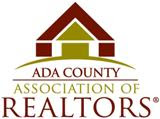I had the extreme privilege to teach an ethics class last Friday and one of the students had a great suggestion. To help keep the Code of Ethics at the forefront of your mind, we need to keep posting about it.
I thought I had been, but the message isn't making it out there. I've decided that I am going do a weekly series - One article every week. (For those of you actually familiar with the code, that means 17 weeks of fun!)
Best to begin at the beginning (profound, I know). So here we go - Article 1.
Article 1 states: When representing a buyer, seller, landlord, tenant, or other client as an agent, REALTORS® pledge to protect and promote the best interests of their client. This obligation to the client is primary, but it does not relieve REALTORS® of their obligation to treat all parties honestly. When serving a buyer, seller, landlord, tenant or other party in a non-agency capacity, REALTORS® remain obligated to treat all parties honestly.
So, what does that actually mean? The standards of practice below the article attempt to explain.
- You are obligated to uphold the Code of Ethics
- Code of Ethics applies no matter where and how you are conducting business
- Do not mislead people about the value of a property
- Dual agency is okay so long as all parties involved truly understand what that means and implies
- Present offers objectively and as soon as you can
- You must submit all offers - verbal and written - even after you have an accepted offer. Doesn't mean you have to continue to market the property.
- Keep confidential information to yourself - even after the termination of the relationship - unless you are court ordered to disclose or if your client plans to commit a crime
- Competently manage clients' property and protect it against reasonably foreseeable losses
- Fill your client in about your office policy regarding cooperation and compensation
- Let clients know that the existence, terms or conditions of their offer may not be confidential unless the parties agree otherwise.
- Your fees for doing a valuation cannot be dependent upon the amount of the valuation
- If your seller permits it, you will tell other potential buyers about the existence of other offers. If the buyer's agent asks, you must tell them the source of the other offer (you, your office, other brokerage).
Okay, so those are the basics. Now let's test your knowledge... Let me give you a hypothethical...
Client A, an army officer, was transferred to a new duty station and listed his home for sale with REALTOR® B as the exclusive agent. He moved to his new station with the understanding that REALTOR® B would obtain a buyer as soon as possible. After six weeks, during which no word had come from REALTOR® B, the client made a weekend visit back to his former community to inspect his property. He learned that REALTOR® B had advertised the house: "Vacant - Owner transferred" and found an "open" sign in the yard. Client A found that REALTOR® B never had a representative at the property but continually kept an "open" sign in the yard. Client A discovered that the key was kept in a combination lockbox and when REALTOR® B received calls from potential purchasers about the property, he simply gave callers the address, advised that the key was in the lockbox, gave them the combination, and told them to look through the house by themselves and to call him back if they needed other information or wanted to make an offer.
Client A filed a complaint with the Board of REALTORS® detailing these facts and charging REALTOR® B with failure to protect and promote the a client's interes by leaving Client A's property open to vandalism, and by not making appropriate efforts to obtain a buyer.
REALTOR® B's defense during the hearing was that his advertising of the property was evidence of his efforts to sell it. He stated, without being specific, that leaving keys to vacant listed property in lockboxes and advising callers to inspect property on their own was "common local practice".
So what do you think? Did he violate the Code of Ethics? Weigh in!
Posted by Susan Hansen - ACAR Director of Member Policy
Monday, February 1, 2010
1 comment:
By submitting your comment to this blog, you are allowing ACAR the right to use and/or display it at our discretion.
We reserve the right to remove or edit any comment due to offensive or inappropriate language, relevancy, commercial endorsements, and spam. This could be done manually or due to automated spam detection software. We will not remove or edit comments we disagree with nor will we edit comments to change the commenter’s intention.
Subscribe to:
Post Comments (Atom)

.jpg)

Answer:
ReplyDeleteThe Hearing Panel concluded that REALTOR® B was IN VIOLATION of Article 1 of the Code of Ethics because he had failed to act in a professional manner consistent with his obligations to protect and promote the interests of his client.